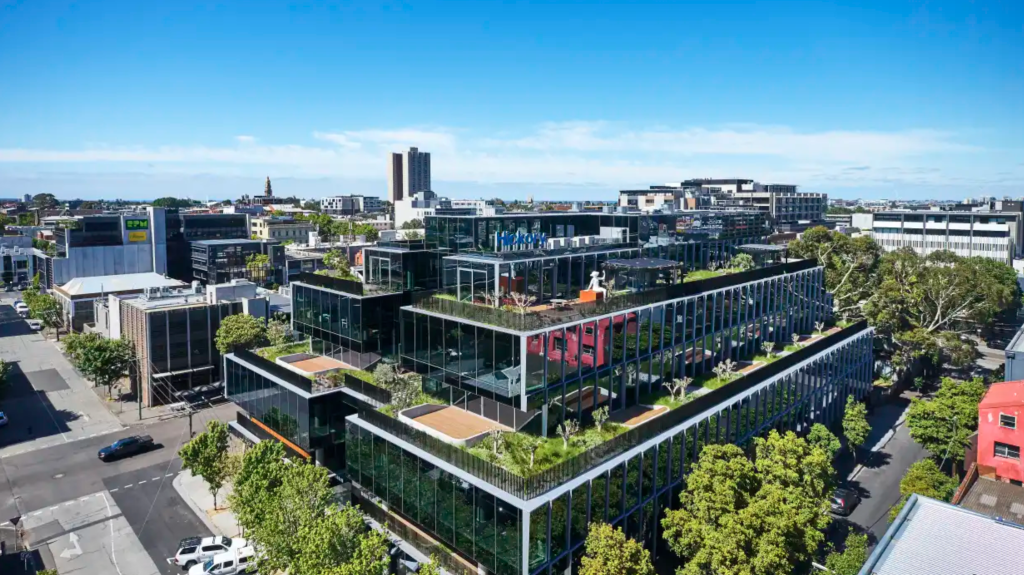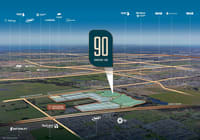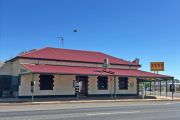
Call of Duty to the office as Activision sets up Melbourne studio
Activision, the publisher of cult video games including Call of Duty, Guitar Hero and Skylanders, gave its designers a very specific brief for the design studio it is building in South Melbourne – it had to have a games room.
As a result, there will be a 67-square-metre dedicated games room within the entire floor that the Nasdaq-listed Activision is leasing in builder and developer Hickory’s newly built office tower at 68 Clarke Street on the southern edge of the Victorian capital.
At first, it was a confusing request.
“When they said. ‘We need a games room’, I thought it was to test what they were doing,” Studio Tate design director Alex Hopkins said. “But in actual fact it was an enclosed environment where the guys can step away from their desks and sit back and play a game and zone out.”
The fast-expanding company – which told investors this month it wants to more than double its monthly active users from the current 400 million to more than 1 billion – says a games room is crucial in the global contest it is waging for skilled workers against other tech companies.
“It’s very important,” said Simon Parfitt, Activision’s London-based head of international real estate operations.
“Fit-out and a games room in my eyes are vital. We need to make the talent comfortable and design office space that makes it easier for us to attract the talent we want and retain the talent we want. Real estate plays a big part.”
Activision’s first studio in this region – the closest is in Shanghai – shows the need for dedicated office space, even when the pandemic has cast doubt on the future of the office.
“What we believe in terms of return to work is the idea of coming together to collaborate,” Ms Hopkins said. “That’s relevant in any sector.”
Offices also provide crucial infrastructure, such as electricity and cooling. Activision needed Hickory to supply 1000 watts per desk, more than triple the usual 300 watts, as each worker has an array of four screens and multiple PCs.
Activision, which will operate this studio under its Sledgehammer Games brand, has a corporate office in Sydney, but chose not to set up a studio in Sydney. It wanted to be as convenient an employer as possible for the Melbourne coding graduates it is targeting.
The company opted for an interior with a retro-1980s theme as it offered longevity.
“The problem with cutting edge is it goes out of fashion very quickly, whereas if you go with something retro, it’s always going to be retro,” Mr Parfitt said.
It aimed to be a fun space, Ms Hopkins said.
“It wasn’t about the hard edge of materials reflecting contemporary thinking about the motherboard of a computer,” she said. “This is ’80s nostalgia. It was about injecting colour, texture detail and warmth.”
It already employs six coders in the city. They support another studio, but this new studio will be a full operation in its own right that will employ 120 people – coders, sound engineers, artists, game developers and a leadership team – by year-end.
“Melbourne is where the talent we were looking for was,” Mr Parfitt said.
Activision has taken a five-year lease with an extension option, a risk mitigation measure for companies that before online gaming made their money from boxed set games that took a year to produce. If a new release flopped, a long lease could leave it exposed.
But that flexibility also protects the company in the evolving war for talent. The lack of rivals in Melbourne is an advantage. It makes hiring easier – and no doubt cheaper – because competition for staff isn’t as great as it is in other places, such as the San Francisco Bay area.
But that won’t last forever.
“As more companies pop up in Melbourne, it will become harder to acquire talent,” Mr Parfitt said.
The company, paying in the high $500-per-square-metre range, is due to move in in April. The lease was negotiated by Colliers’ Travis Myerscough.











